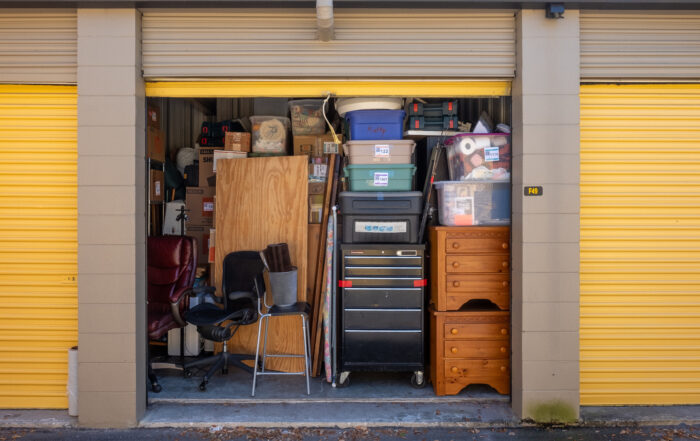Understanding Self-Storage Lease Terms: What to Know Before You Sign
Renting a self-storage unit is often one of those tasks that feels simple at first—pick a unit, sign a lease, move your stuff in. But if you’re like most people, the fine print on that lease can feel like a maze of unfamiliar terms, hidden fees, and what-ifs.
Before you sign the dotted line, it’s important to understand exactly what you’re agreeing to. That way, there are no surprises down the road—and you can feel confident that your belongings are in good hands, both physically and contractually.
Here’s a breakdown of the key things to look for in a self-storage lease and what they really mean for you.
Lease Term: Month-to-Month or Long-Term?
Most self-storage facilities offer month-to-month leases, which gives you the flexibility to store your items without a long-term commitment. That’s ideal if you’re moving, renovating, or unsure how long you’ll need the unit.
However, some facilities also offer discounted long-term leases, often for 6 months or a year, in exchange for a lower monthly rate. If you’re planning to store items for a long time, this might be worth considering—but make sure you’re ready to commit.
Tip: Ask what happens if you need to break a long-term lease early. Some facilities may charge an early termination fee.
Rent Increases
Here’s something many people miss: storage unit rent isn’t locked in forever. Most leases allow the facility to increase the monthly rent with 30 days’ notice (sometimes even less). While this is standard practice in the industry, it can catch renters off guard.
Tip: Ask how often rent increases typically happen and whether you’ll receive advanced written notice. It’s better to plan ahead than be surprised by a sudden hike.
Fees and Deposits
Before signing, make sure you understand all the potential fees. These may include:
- Administrative/setup fees (usually a one-time charge)
- Late payment fees
- Lock or key fees
- Insurance fees, if the facility requires you to purchase coverage through them
Some facilities also ask for a refundable security deposit that you get back when you vacate the unit in good condition.
Tip: Ask for a breakdown of all upfront and recurring charges before committing. A reputable facility should be transparent.
Insurance Requirements
Many storage facilities require proof of insurance. If you don’t already have a renter’s or homeowner’s policy that covers stored items, the facility may require you to buy storage-specific insurance through them.
Tip: Contact your current insurance provider to see if your policy extends to items in storage. If not, ask your storage provider for details about their coverage options—and read the policy limits and exclusions closely.
Access Hours and Gate Rules
Just because you’ve rented a unit doesn’t mean you can access it 24/7. Many facilities have specific gate access hours (e.g., 6 am to 10 pm), and some charge extra for extended or after-hours access.
Also, take note of whether you’ll be given a personalized gate code, key fob, or app-based access system—and whether that’s included in your fee.
Tip: If you think you’ll need late-night or weekend access, make sure those hours work for your schedule before signing the lease.
Termination Policy
Every lease includes a termination clause, which outlines how to end your rental agreement properly. Some leases require a written notice (often 10-30 days in advance), while others may allow you to cancel verbally or online.
Also, check if rent is prorated—meaning you only pay for the days you use in your final month. Some facilities require full-month payments, even if you move out mid-month.
Tip: Ask what steps are needed to terminate the lease and what happens if you forget to notify the facility. The last thing you want is to be charged for another month because of a miscommunication.
Responsibilities and Restrictions
Finally, your lease will include rules about what you can and can’t do in your unit. These may include:
- No living or sleeping in the unit
- No storing flammable or hazardous materials
- No running a business out of the space
- No altering or damaging the unit
Tip: Violating these rules could result in eviction or forfeiture of your unit. Read this section carefully and ask questions if anything seems unclear.
Renting a storage unit should feel like a smart, stress-free solution, but that peace of mind starts with knowing what you’re signing up for. By taking the time to understand your lease, especially the details about pricing, access, insurance, and termination, you’ll avoid headaches and surprises down the road.
And remember: a reputable self-storage facility will never rush you into a contract. They’ll be happy to walk you through the lease, explain anything that seems confusing, and help you find the best storage solution for your needs.
Storage is about more than space—it’s about trust. Read the fine print, ask the right questions, read the company’s FAQ if they have one, and choose a facility that makes you feel secure from the very beginning. Ready for your storage unit solution? Call Albuquerque Self-Storage today!
Recent Posts
Tool Storage Made Easy: Here’s How
Proper tool storage is an important part of keeping your garage organized and functional. Store tools like a pro and maximize your space with these tips. Whether you’re downsizing to a smaller space or just [...]
Must-Know Tips For indoor Motorcycle Storage
Mother Nature can be rough on motorcycles left outdoors for long periods of time, exposed to Albuquerque’s fluctuating weather. And not everyone owns a garage, or has room in their garage, for indoor motorcycle storage. [...]
Understanding Self-Storage Lease Terms: What to Know Before You Sign
Renting a self-storage unit is often one of those tasks that feels simple at first—pick a unit, sign a lease, move your stuff in. But if you’re like most people, the fine print on that [...]



